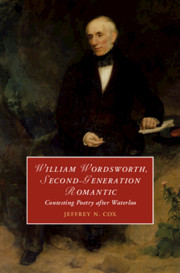Understanding Coleridge's classic work On the Constitution of Church and State requires paying close attention to the system of distinctions and relations he sets up between the state, the ‘national church’, and the ‘Christian church’. The intelligibility of these relations depends finally on Coleridge's Trinitarianism, his doctrine of ‘divine ideas’, and the subtle analogy he draws between the Church of England as both an ‘established’ church of the nation and as a Christian church and the distinction and union of divinity and humanity in Christ. Church and State opens up, in these ‘saving’ distinctions and connections, important considerations for the integrity and role of the Christian church within a religiously plural national life.
